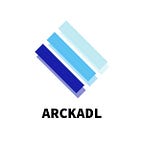How is Blockchain Secure?
Blockchain is known as a secure solution. But why can we be so sure that this is the case?
A blockchain is secured through a chain of digital blocks that contain records of transactions. Each block is connected to the one before it and the one after it. This means that for changes to be made in the data, the blocks surrounding it will need to be changed. This might not sound convincing enough, but the blockchain’s immutability is based on the principles of consensus algorithms, cryptography and decentralization to ensure trust is maintained across all transactions.
Consensus
Blockchains work through a consensus model that verifies that each transaction is legitimate. Consensus models include proof-of-work, proof-of-stake and proof of authority.
Proof-of-Work: When mining blocks, miners must calculate the solution to a proof of work challenge using a series of costly guesses generated by your computer’s processing power.
Proof-of-Stake: Proof-of-Stake models consider the amount of coins a miner holds when determining how much mining power they will have.
Proof of Authority: This consensus algorithm requires validation based on identities, which means that those validating blocks are staking their reputation instead of the coins themselves.
The general rule that applies to ensure immutability through consensus is called the longest chain rule. This rule states that wherever two conflicting versions of the same block appear, the one that is followed by the longest chain of blocks is the correct one, and any forks are abandoned.
Cryptography
Cryptography, originating from the Greek word “Kryptos,” meaning hidden, is known as the study of secure communications techniques that allow the sender and intended recipient to view the contents of the message. Blockchains rely heavily on cryptographic hashing functions. The hashing process works when an algorithm, also known as a hash function, receives data of any size and returns an output, also known as a hash, in a fixed length. Repeated use of the same input will continue to generate the same output.
These hashes provide security since each acts as a unique identifier for the data block. Each hash is created based on the relationship between the current block and the previous block, to produce a block chain. Hash identifiers can then be attributed to blockchain security and immutability. Hashing functions are also used in the consensus algorithms mentioned above to validate transactions on the blockchain.
Decentralization
Blockchain has become known for being decentralized since each device on the network has access to the ledger. Therefore, there is no single point of failure, and no one user can tamper with the record of transactions. To do so, a user would need to build up enough computing power to undermine the network.
Making Blockchain More Secure
Although the blockchain is designed for security, each system is still subject to a few inherent flaws. First, the right type of blockchain must be selected to ensure that business goals can be met. The right kind of blockchain can be determined by who is participating and can have access to the data. A blockchain network can be either public or private and permissioned or unpermissioned. In a public network, anyone can join, and participants are kept anonymous. In contrast, a private chain uses an individual’s identity to confirm membership and access privileges to data types. Businesses might also decide to opt for a permissioned system, where access must be granted to the blockchain and users can’t just download the software and run it.
Unfortunately, using a permissioned system raises questions such as “who can grant permission to the network?” and “are the validators trustworthy?” Some argue this defeats the purpose of the decentralized security functions of the blockchain. However, it depends on the use case of the underlying technology.
Leveraging the right technology leads us to the second recommendation. That is, employing a blockchain professional in the development and design of your system. Since the technology is so specialized, the right professionals can make recommendations that your in-house team may not have considered.
To learn more about the Arckadl team, and how we can provide expertise in blockchain development we encourage you to follow along on our Medium blog. Learn something? Give us a clap or leave any questions you might have below.
